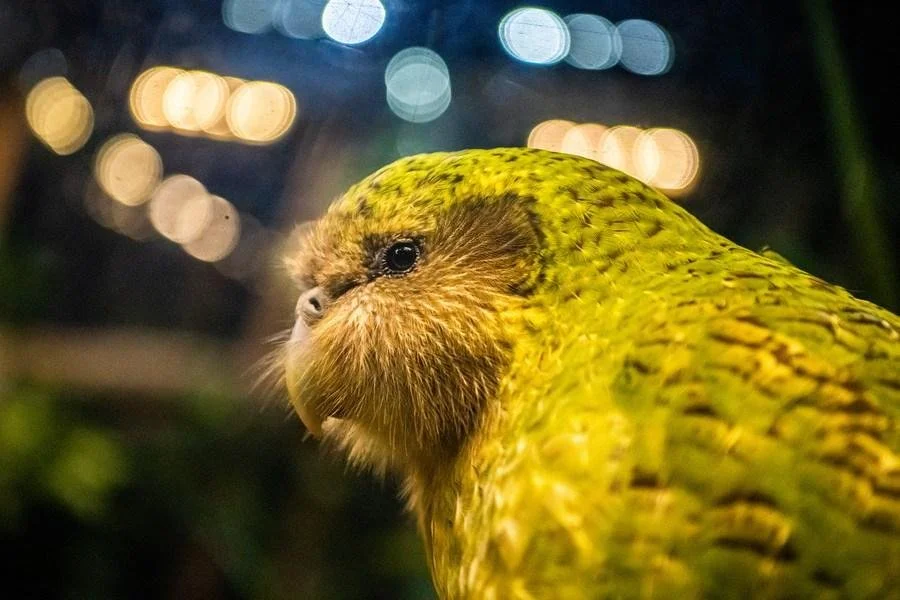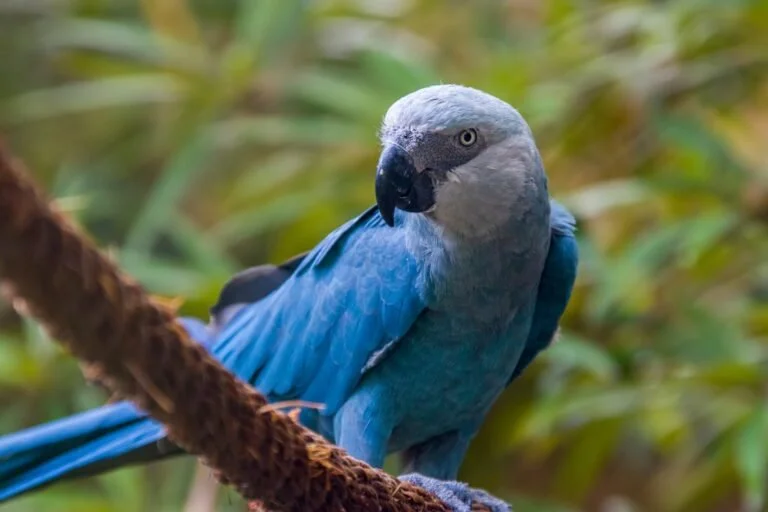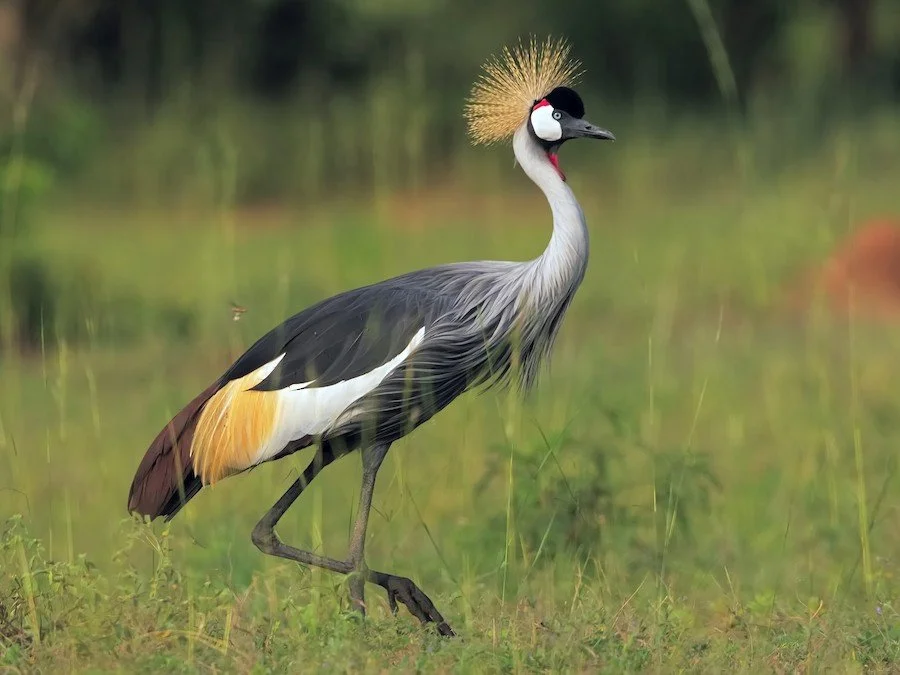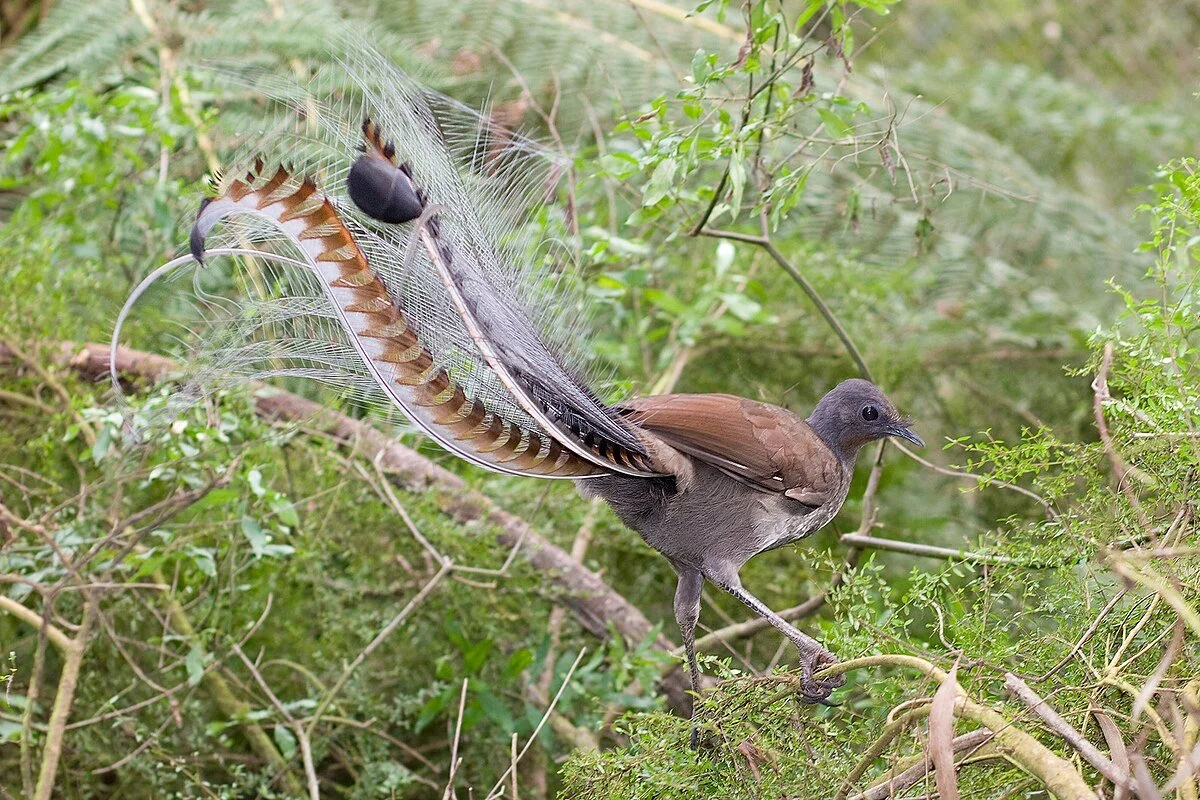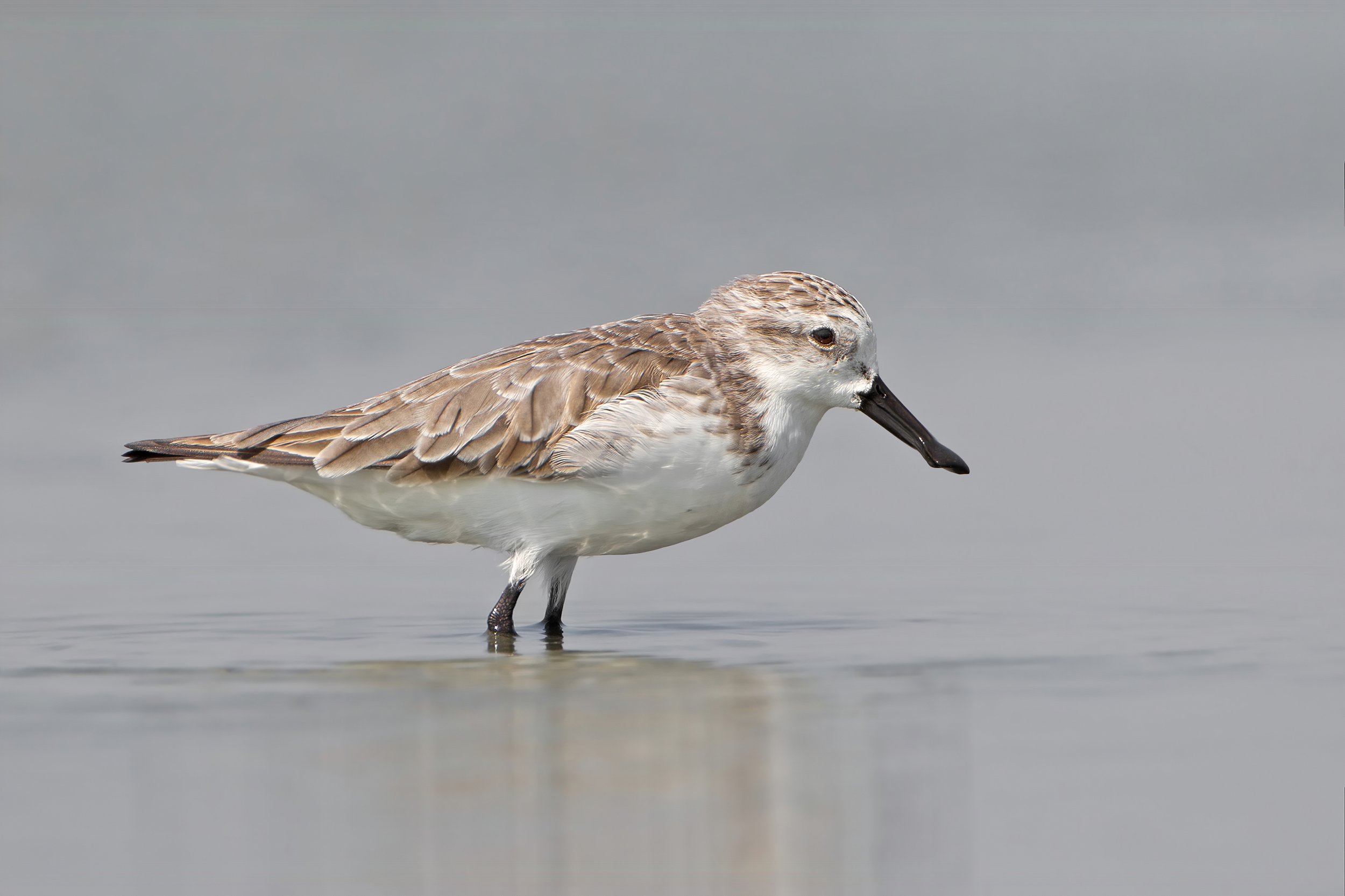Kakapo
Strigops habroptilus
The Kakapo, a moss-green, nocturnal parrot of New Zealand, is as endearing as it is rare. Flightless and fragrant, it once roamed forests freely—until invasive predators decimated its numbers. By the 1990s, fewer than 50 remained. But an intensive conservation effort, including island sanctuaries and round-the-clock monitoring, has brought the population past 250. The Kakapo’s slow dance back from the brink is a triumph of care, science, and second chances.
Critically Endangered
Population: 180 (functionally extinct in wild)
Years Until Extinction: ~25 years without aggressive protection
Habitat
Lowland and montane dipterocarp forests
Main Threat
Logging, agriculture, and hunting
Description
A rotund, moss-green parrot with owl-like eyes and a waddling gait. Covered in soft, speckled feathers and emitting a sweet herbal scent.
Wingspan: 24 inches
Diet: Native fruits, leaves, bark and seeds
Nesting: Cavity nests in old Caraibeira trees
Mating: Gentle mutual preening and synchronized calls
The Kakapo is a large, nocturnal, flightless parrot from New Zealand, known for its mossy camouflage, owl-like face, and low booming courtship calls. With a moss-green dress, the dance captures its earthbound weight and quiet charisma with slow, grounded strides, long still pauses, and resonant pulsing gestures that echo its distinctive mating call.
Learn the Dance
Choreography Suggestions:
Grounded sway: low center of gravity with slow, side-to-side sways
Booming pulse: two heavy steps accented by a chest pulse
Feather preen: circular forearm brushes along shoulders and chest
Slow, weighty, and endearing; steady tempo with heavy pulses.
Not a dancer? Co-create with AI!
Costume Ideas: Moss-green top with speckled yellow-green cape.
Prompt Ideas: Low-stance dancer as kakapo: slow sways, two heavy steps with chest pulse, preening arm circles; moss-green speckled cape; forest-night mood, soft rim light, gentle dolly-in, loopable.
Despite its fierce look, the Philippine Eagle mates for life, and both parents share chick-rearing duties.


